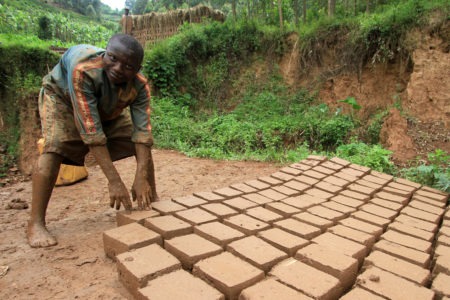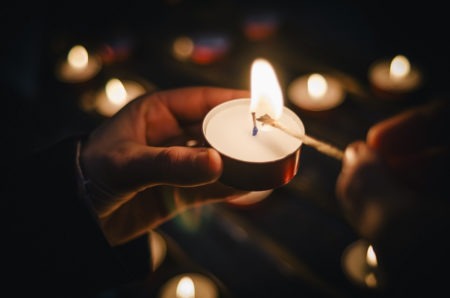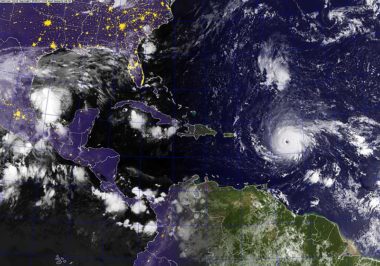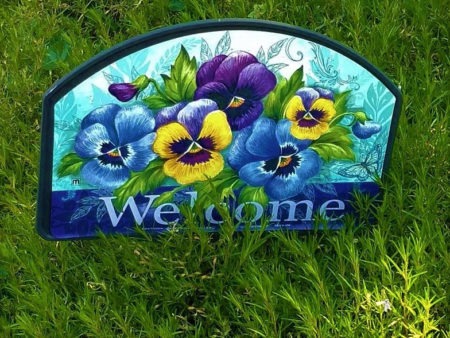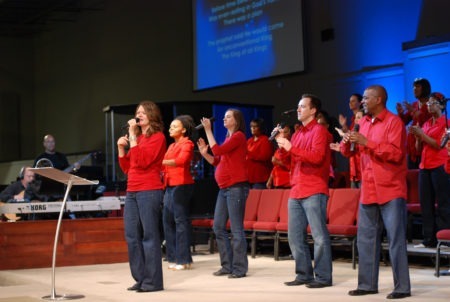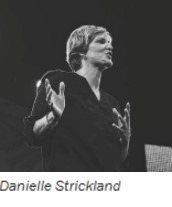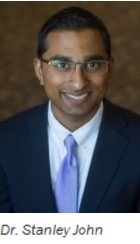Note from the Editor: This timely word is reprinted from the original February 2014 post
I frequently do workshops on prayer, which I always find kind of odd because I’ve never felt myself to be much of an expert on that kind of thing. Prayer is hard work for me; it’s meaningful, but it’s hard. During my workshops I always focus at some point on intercessory prayer – prayer for needs beyond our own – and every time I do, a cartoon I saw years ago pops into my head: A guy sees a friend across the church parking lot. In the bubble above his head he thinks, “Uh oh! I told Bob I’d pray for him! … Dear God, bless Bob.” Then he waves and says, “Hey Bob! Been praying for ya!”
There are a lot of levels to intercession – praying for needs beyond our own – but every time I think of this cartoon I’m reminded of an important truth: praying for others isn’t so much about rattling off the words of our prayers (even if those words are more genuine than in the cartoon). It’s about becoming our prayers. I believe God responds to our prayers – there’s mystery here I know, but I believe it despite and maybe even because of that mystery. The interesting thing about praying for needs that aren’t our own is that many times God’s response is not as much directly about those needs as it is directly about us.
When I pray for the hungry, I know God responds, but that response almost always includes, “I hear you, I’m working, but what are you going to do about the hungry?” When I pray for people who are lonely, I know God responds, but that response almost always includes, “Okay, Kim. You know I’m a comfort to the lonely, but what are you going to do? How are you going to bring that person comfort?” At every turn it’s the same. “What are you going to do?” At every turn I realize it’s not just about the words of my prayers, even though they’re important, it’s about becoming my prayers.
Now this shouldn’t be a massive revelation; but it’s significant for me as I approach the season of Lent. During Lent we often focus on sacrifice. People give something up as a part of their spiritual discipline. I frequently give up diet coke, which those who know me, know isn’t an easy thing. Often I also fast twice a week. Also not an easy thing, at least for me. So I know that during the next several weeks I’m going to have to decide what kind of spiritual discipline I will undertake to mark the season.
So why is the idea of becoming my prayers so significant for me right now? I’m not sure, but I think it has to do with a passage from Isaiah that seems to enter my mind every time I begin to think about engaging in any kind of “self-denial project”:
Shout with the voice of a trumpet blast. Shout aloud! Don’t be timid. Tell my people Israel of their sins! Yet they act so pious! They come to the Temple every day and seem delighted to learn all about me. They act like a righteous nation that would never abandon the laws of its God. They ask me to take action on their behalf, pretending they want to be near me.
‘We have fasted before you!’ they say. ‘Why aren’t you impressed? We have been very hard on ourselves, and you don’t even notice it!’
I will tell you why! It’s because you are fasting to please yourselves. Even while you fast, you keep oppressing your workers. What good is fasting when you keep on fighting and quarreling? This kind of fasting will never get you anywhere with me. You humble yourselves by going through the motions of penance, bowing your heads like reeds bending in the wind. You dress in burlap and cover yourselves with ashes.
Is this what you call fasting? Do you really think this will please the Lord? No, this is the kind of fasting I want: Free those who are wrongly imprisoned; lighten the burden of those who work for you. Let the oppressed go free, and remove the chains that bind people. Share your food with the hungry, and give shelter to the homeless. Give clothes to those who need them, and do not hide from relatives who need your help. Then your salvation will come like the dawn, and your wounds will quickly heal…
Remove the heavy yoke of oppression. Stop pointing your finger and spreading vicious rumors! Feed the hungry, and help those in trouble. Then your light will shine out from the darkness, and the darkness around you will be as bright as noon. (Isaiah 58:1-8, 10)
I often talk about “speaking faith,” which for me means (among other things) giving life to our ideas and beliefs by speaking them aloud. Moving them from the realm of our personal, interior selves to an external realm where they can become infectious and dynamic. That’s the kind of thing I want to happen to my prayers, to my fasting, to whatever self-denial I decide to undertake. I want to move them beyond my interior self. I want them to make a difference beyond the inner realm of my own personal spirituality.
In Healing of Purpose, John E. Biersdorf writes, “As an act of love, prayer is a courageous act. It is a risk we take. It is a life-and-death risk, believing in the promises of the gospel, that God’s love is indeed operative in the world. In prayer we have the courage, perhaps even the presumption and the arrogance or the audacity to claim that God’s love can be operative in the very specific situations of human need that we encounter.”
I believe God’s love can be operative in very specific situations of human need, that’s why I pray. But there’s a very real sense in which that love becomes operative only when I become my prayer, when I become my fast, when I become my self-denial. That’s when it becomes pleasing to God. That’s when God’s light shines out from the darkness and our darkness becomes as light as day.

